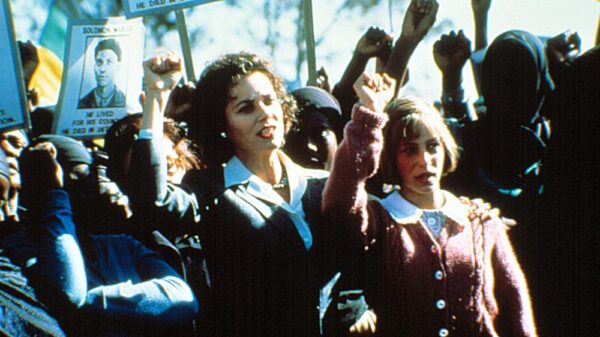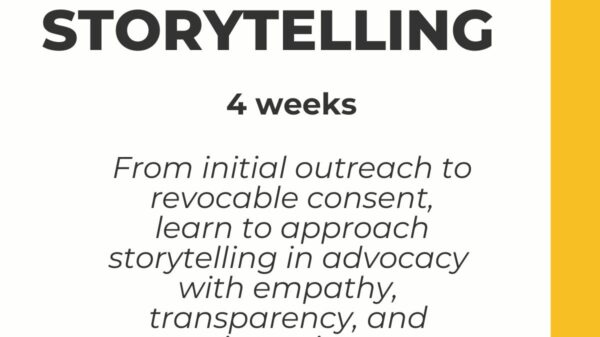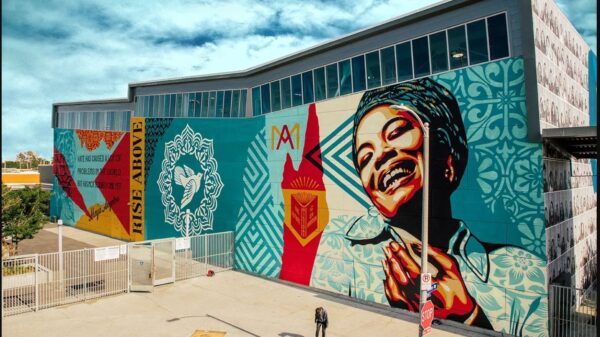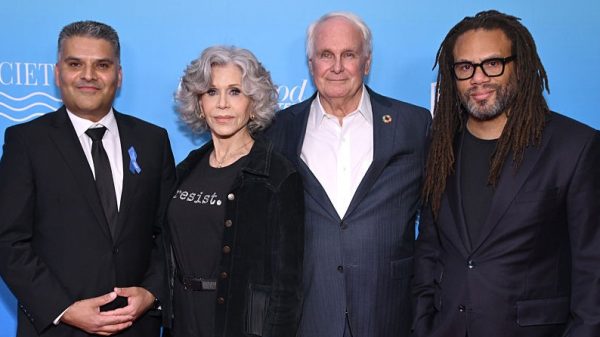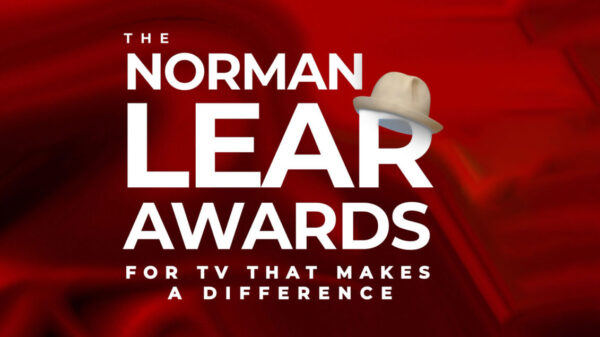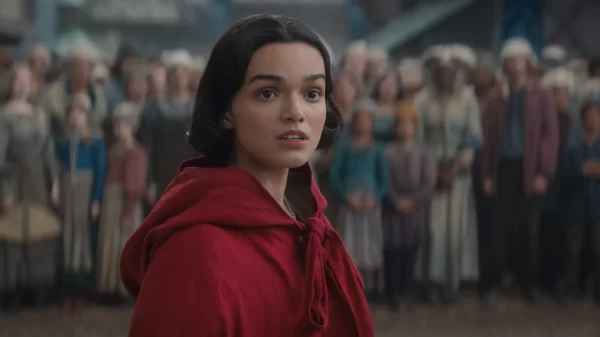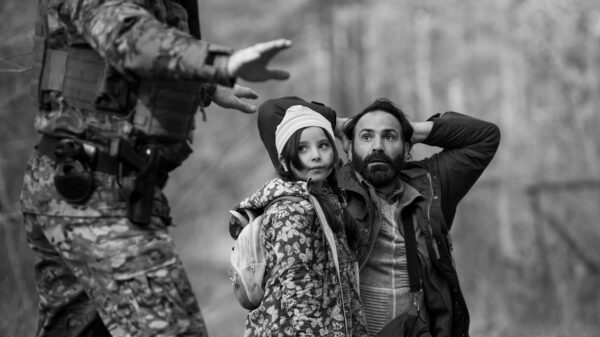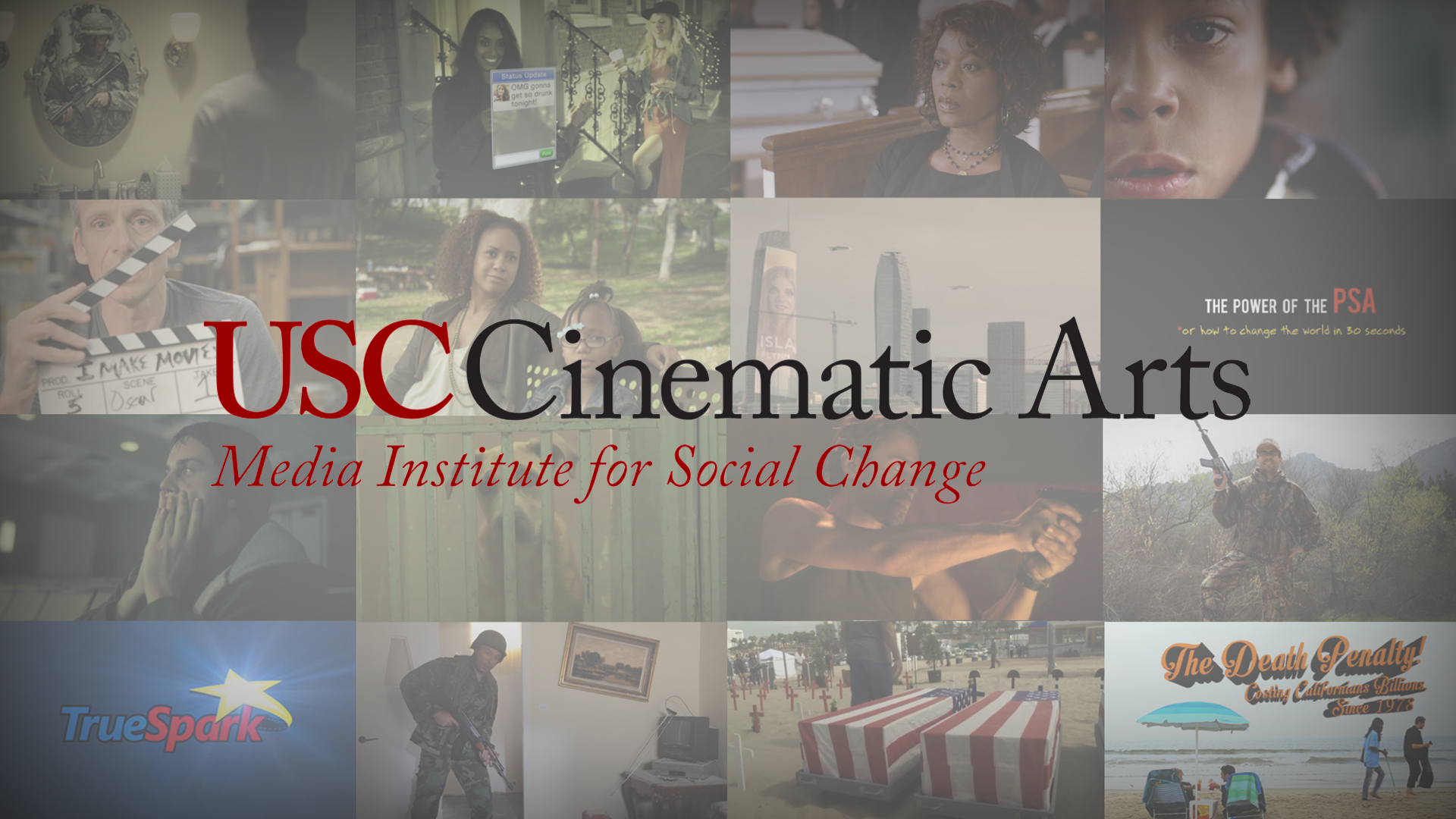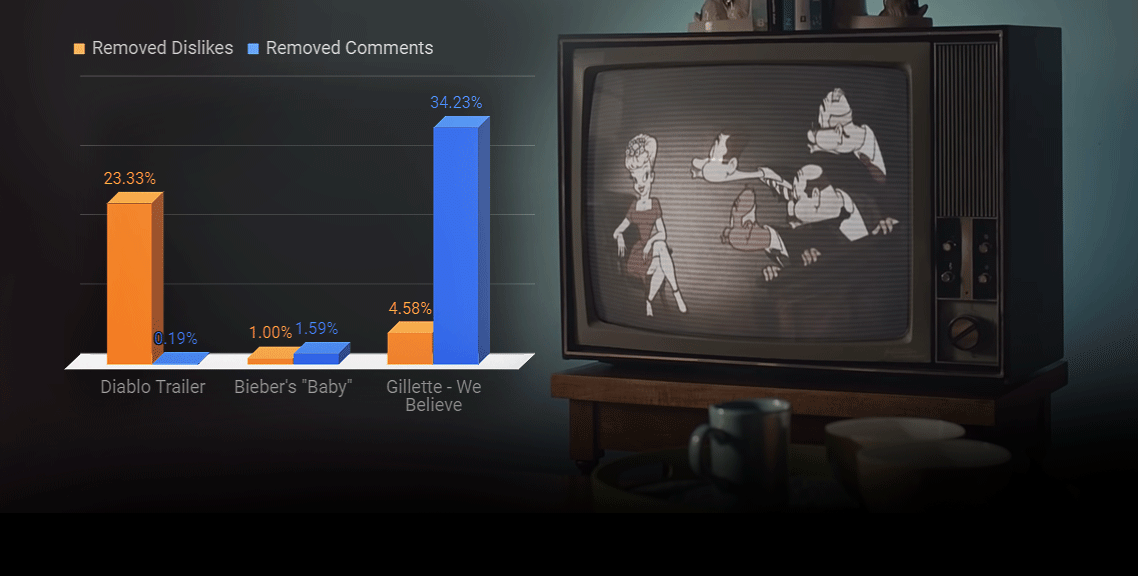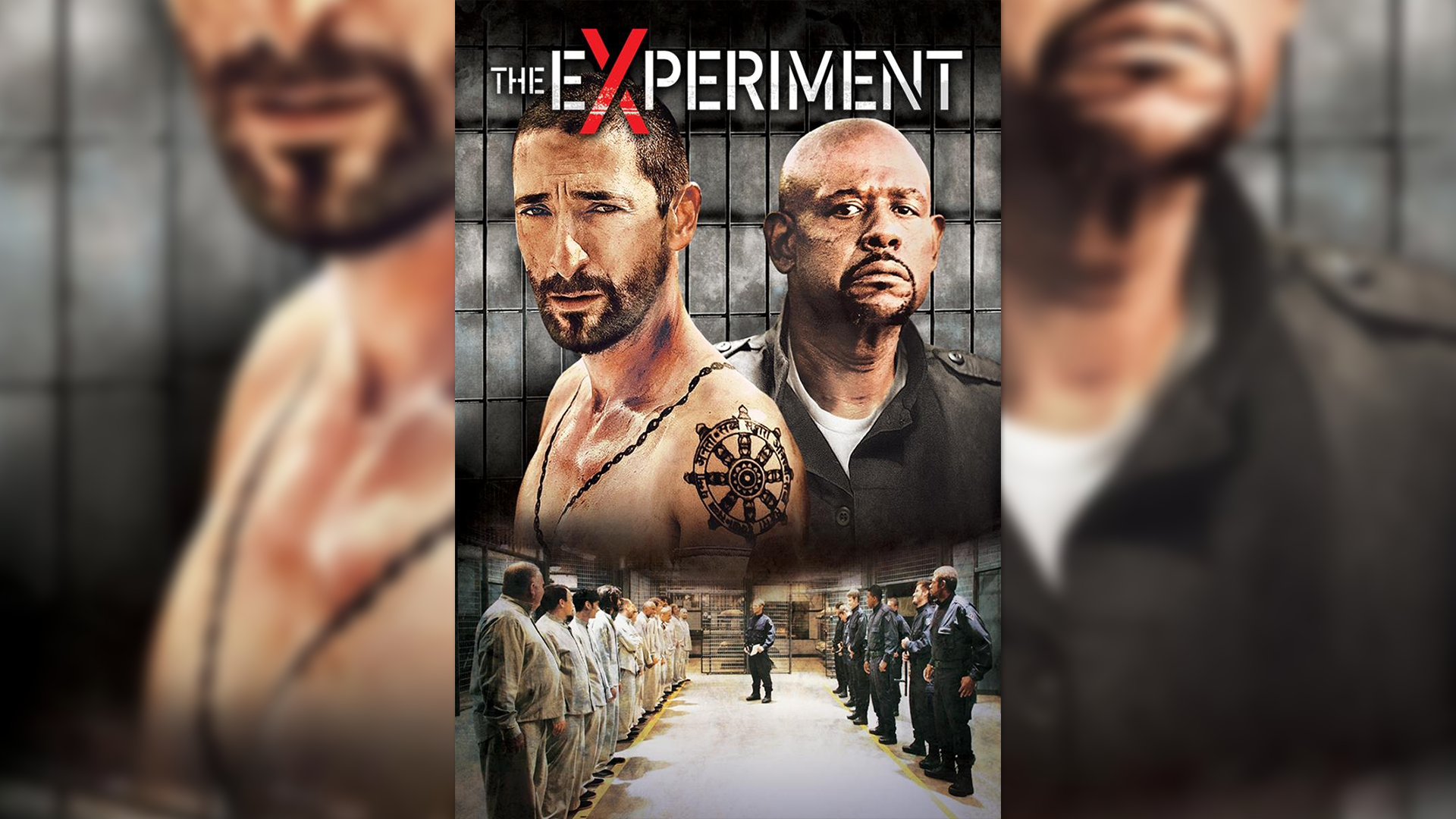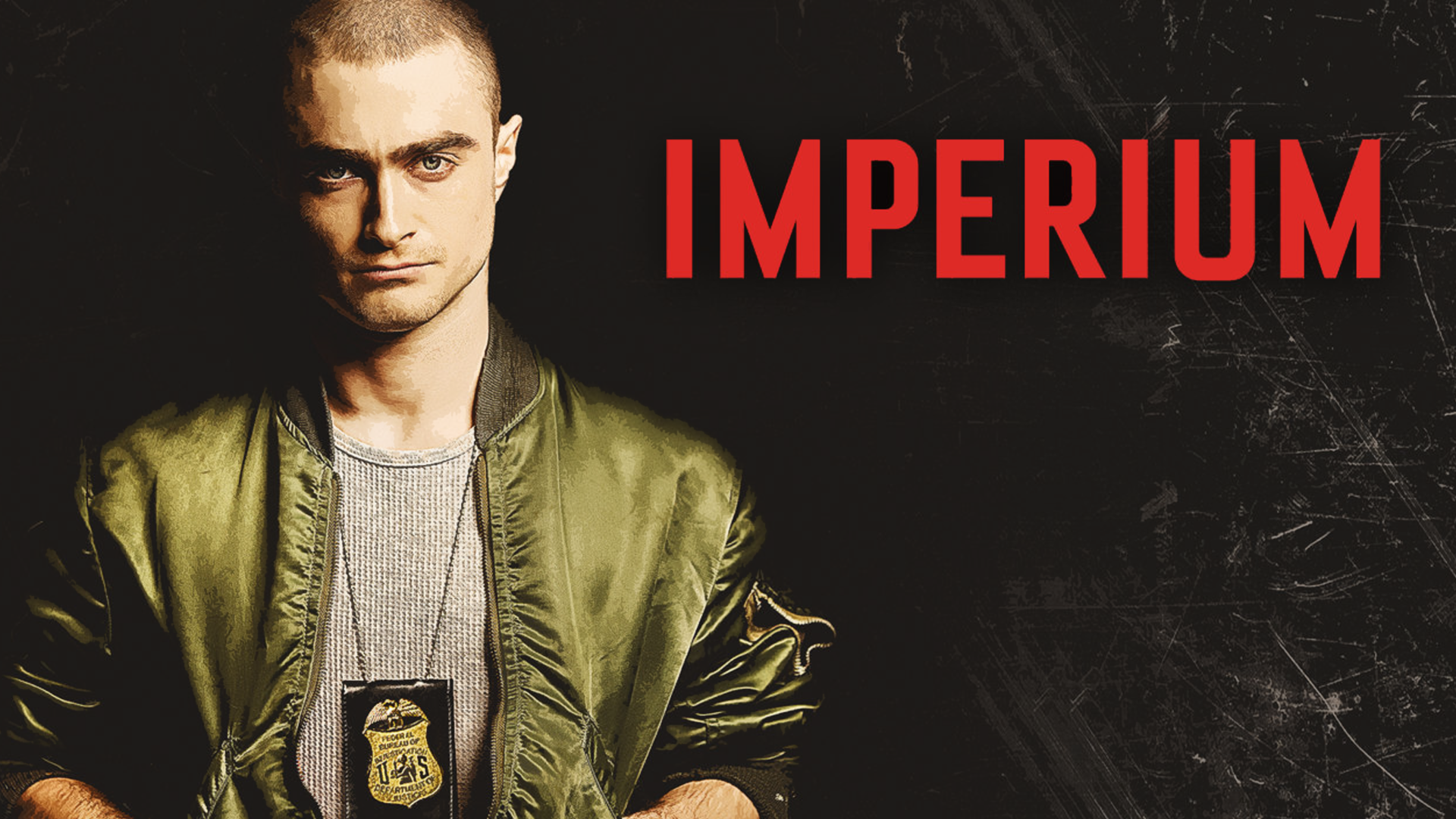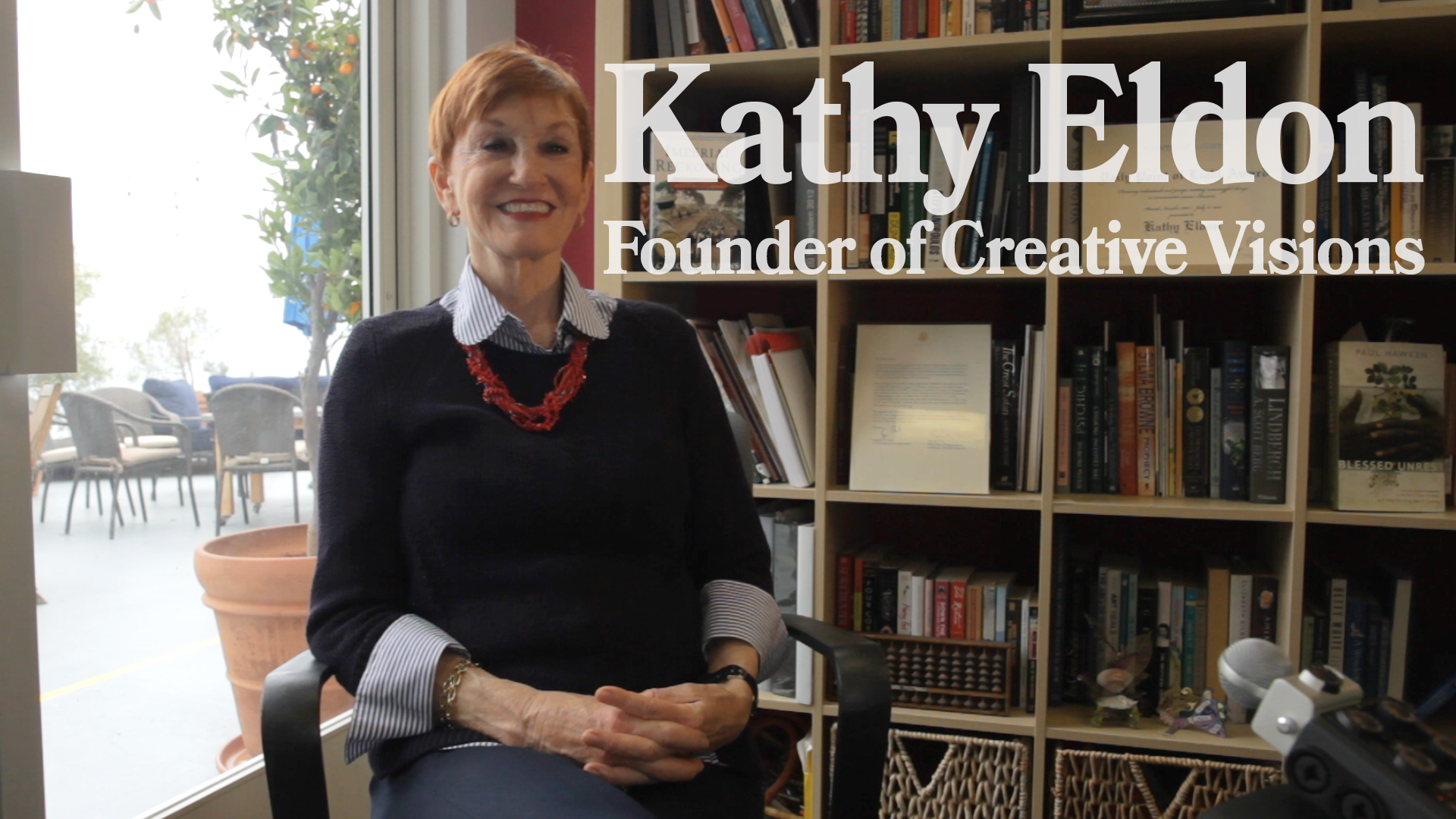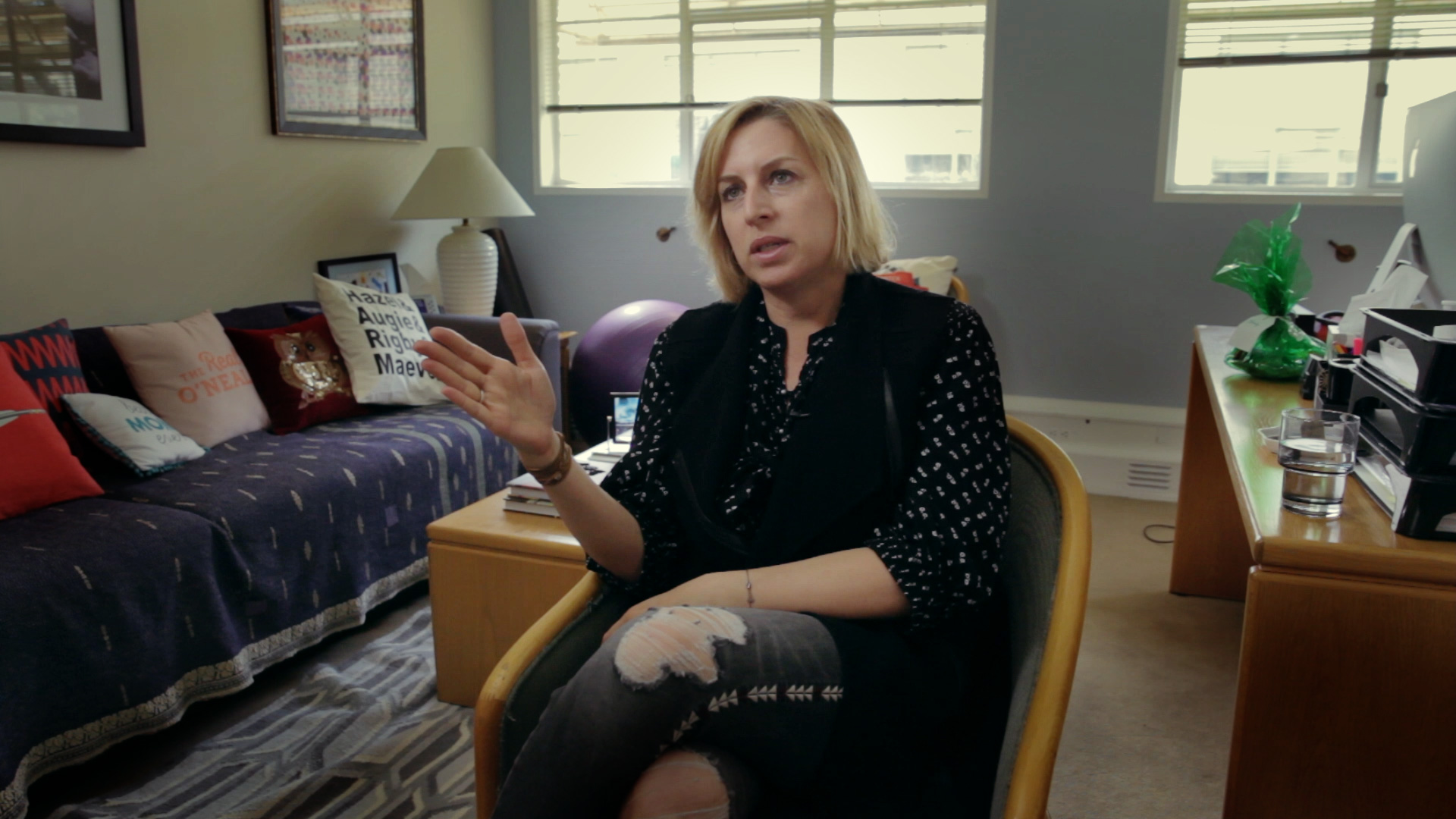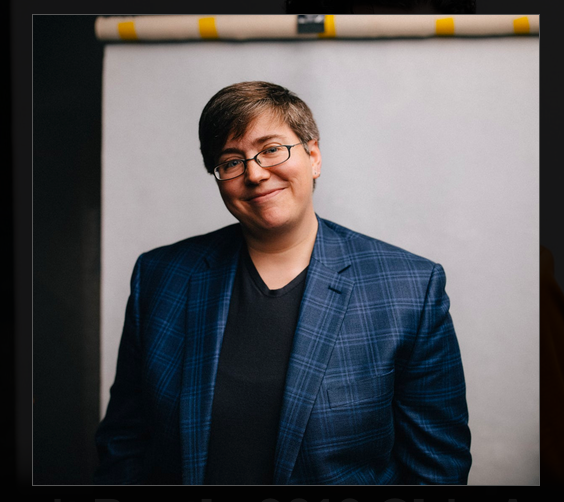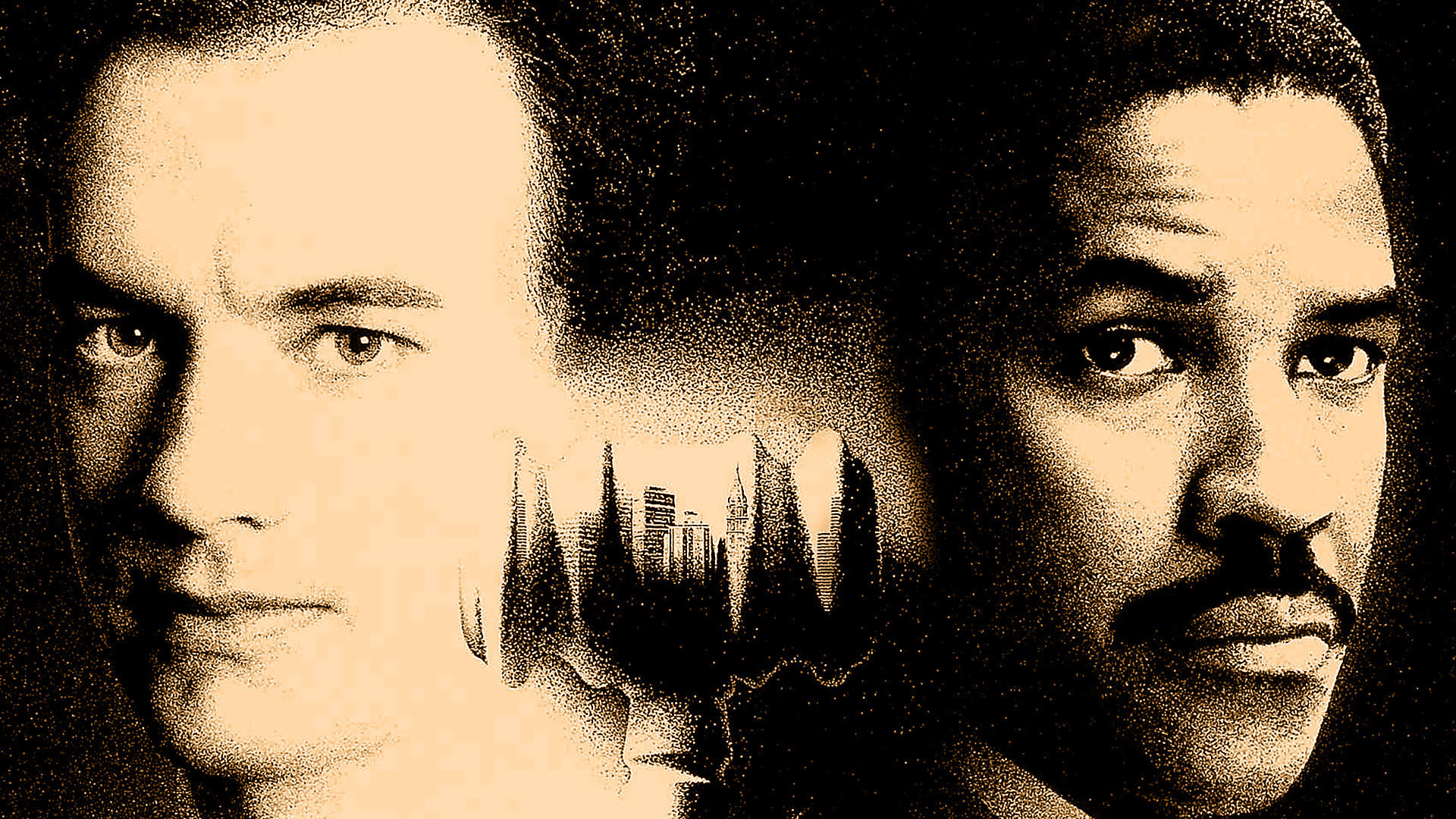In the essay anthology 100 Plays to Save the World, theater artists Elizabeth Freestone and Jeanie O’Hare describe Pulitzer-finalist Madeleine George’s play Hurricane Diane as a “Greek comedy mixed with Desperate Housewives, with a dash of The L Word… a mixture of casual realism and cosmic charge.”
It’s an apt description for the comedy, in which Dionysus — yes, the Dionysus— is reincarnated as Diane, a butch lesbian hellbent on saving the planet with the help of her small-scale permaculture landscaping business. Understandably worried by the current state of affairs (who will worship her if the humans die out?), she’s determined the solution is a good ol’ fashioned Bacchic revival.
“Picture it,” Diane tells the audience. “My ecstasy spreading from village to town until the entire earth hums with organic joy!” The epicenter of her revival? A small cul-de-sac in Monmouth County, New Jersey, and the four housewives who live there.
Hurricane Diane was first staged in 2017 at Two River Theatre in Red Bank, New Jersey, before transferring to New York Theatre Workshop, the famed Off-Broadway theater that launched hit shows like Rent and Hadestown. In the years since, it has been performed across the country, quickly becoming one of the most well-known American climate plays.
Christopher Lysik, a fellow playwright and frequent contributor to Bluedot Living, a solutions-focused climate and sustainability publication, sat down with Madeleine via Zoom as the play prepared to go into rehearsals for a June 2025 production at Hartford Stage. Together, they talked about the show’s origins, the merits of ecoterrorism, and why it’s so hard to write dramas about the climate.
– – –
Christopher Lysik: Let’s start simple. How did the idea for Hurricane Diane first come about?
Madeleine George: The origin of the play was not “How can I attack the climate crisis in a fun and approachable way?” I was reading Michael Pollan’s The Botany of Desire, about the co-evolution of plants and people— how plants cleverly evolved to be what humans need, so they can succeed and flourish. He talks about different qualities plants have, and one of them is sweetness.
In that chapter, he discusses Johnny Appleseed—the historical figure, not the cute myth from a Disney movie. The real guy was a super freak! He was this ascetic who walked barefoot across the land planting apple trees for hard cider. He had this eco-futuristic, saintly idea about planting apple trees. Pollan says he really wasn’t this adorable figure as we know him—he was more like the American Dionysus walking across the landscape, planting vineyards to bring forth this intoxicating substance. Which…that sounds like fun! Immediately I was picturing a Bacchic frenzy on a cul-de-sac—I like a mashup like that!
For a while I didn’t really know what to do with it. Then, I got a commission from [Two River Theater in Red Bank, New Jersey]. I was a resident playwright there, and I thought, “I want to write a play that’s for them, nominally set in this town— a gift back to the community.” [I was also thinking about Hurricane Sandy.] That’s when I started to see what this could really be. Why would there be a Dionysus in a suburban cul-de-sac? Well, maybe this God has climate on the brain.
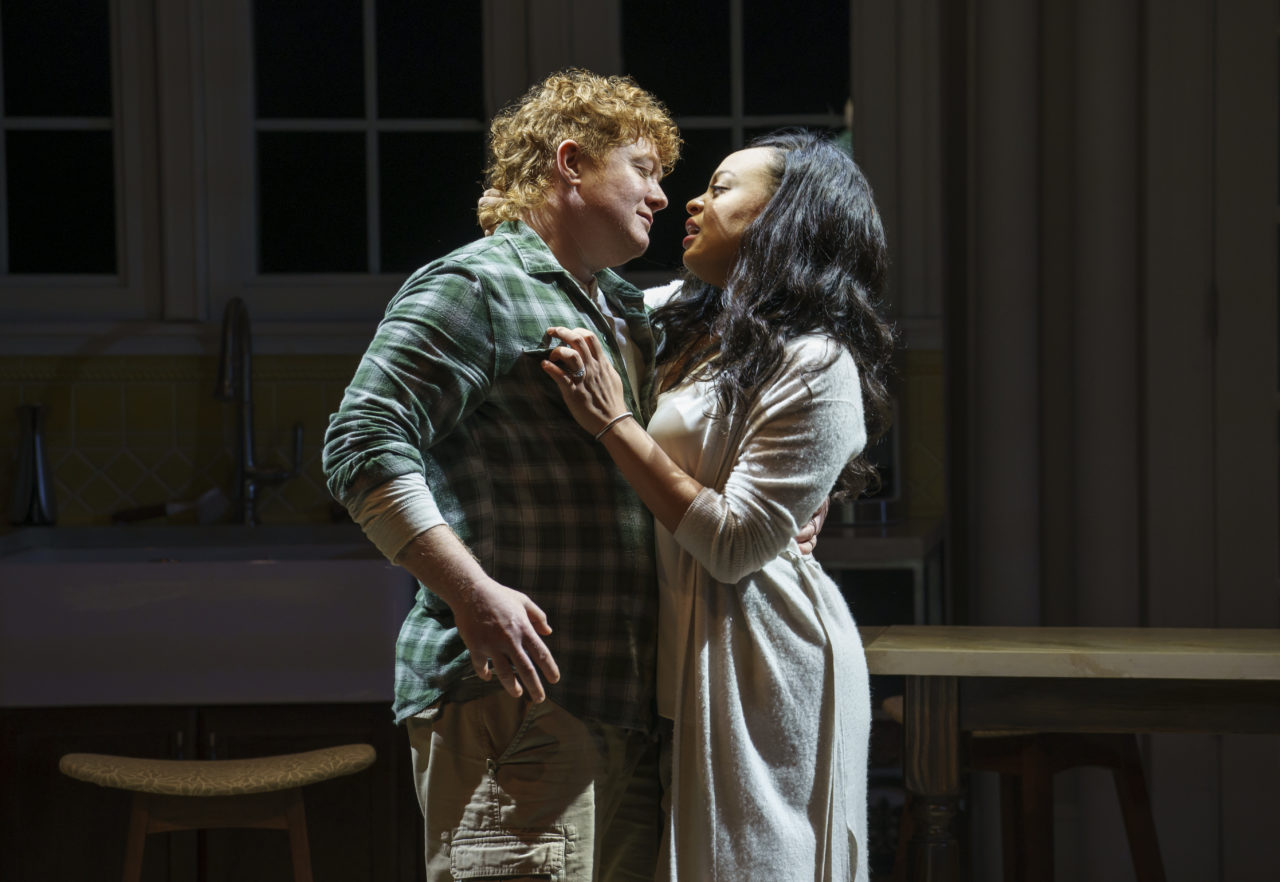
Becca Backwell (Diane) and Michelle Beck (Renee) in the 2019 New York Theatre Workshop production of Hurricane Diane, directed by Leigh Silverman. – Photo courtesy of Sara Krulwich/New York Times
CL: Had you written about climate before?
MG: It was the first time. I spent a bunch of time learning about mitigation efforts in Jersey, like Blue Acres, a state initiative that buys back your house if you live in a flood zone.
But my real way in was through native plants and permaculture, which is a more abiding interest of mine. Tending to the mycelial web, how to build a sustaining garden—those are both small-scale climate mitigation efforts.
I get very excited when I read gardening magazines now and see this absolute sea change that has taken place around [how we think about “lawns”]. There’s some absolutely boggling statistics about how much of America is yard. People tending to their yards using permaculture is actually a way we could change how our ecosystem works.
CL: That has me thinking about Diane’s line in the play, “What is a curb. A curb is a blade that cuts a deep gash into the flesh of the earth and splits it off from the rest of the soil.”
MG: Totally! On the other hand, I was in Banff, Canada, this summer. They have wildlife corridors they’ve built over the highways. You’re driving along the highway, and there’s this archway with forest on top. It’s so easy to fall into despair about what’s happening in the world, but seeing things individual people and municipalities are doing, how big of an impact they have…you can’t help but feel amazed and hopeful.
CL: It’s been eight years since the first production?
MG: The cast went to the Women’s March right before we opened—2017.
CL: And now you have an upcoming production, at Hartford Stage. What’s the difference staging this play now, than in 2017?
MG: That first production took place in a town where Sandy had done so much damage. It was still very fresh in people’s minds. It was tender. The politics of that area are very purple at best. So people were not necessarily open to the message—it felt like the play was really trying to clear a hurdle. Then we did a production in New York in 2019, and it did not feel like we needed to clear that hurdle.
It’s had a lot of productions since then. It’s found a real home in colleges and in small theaters with young people. Which—it’s fun to dress up like these sassy housewives, and do silly makeout scenes and stuff. But also, that’s a group of people that need no convincing.
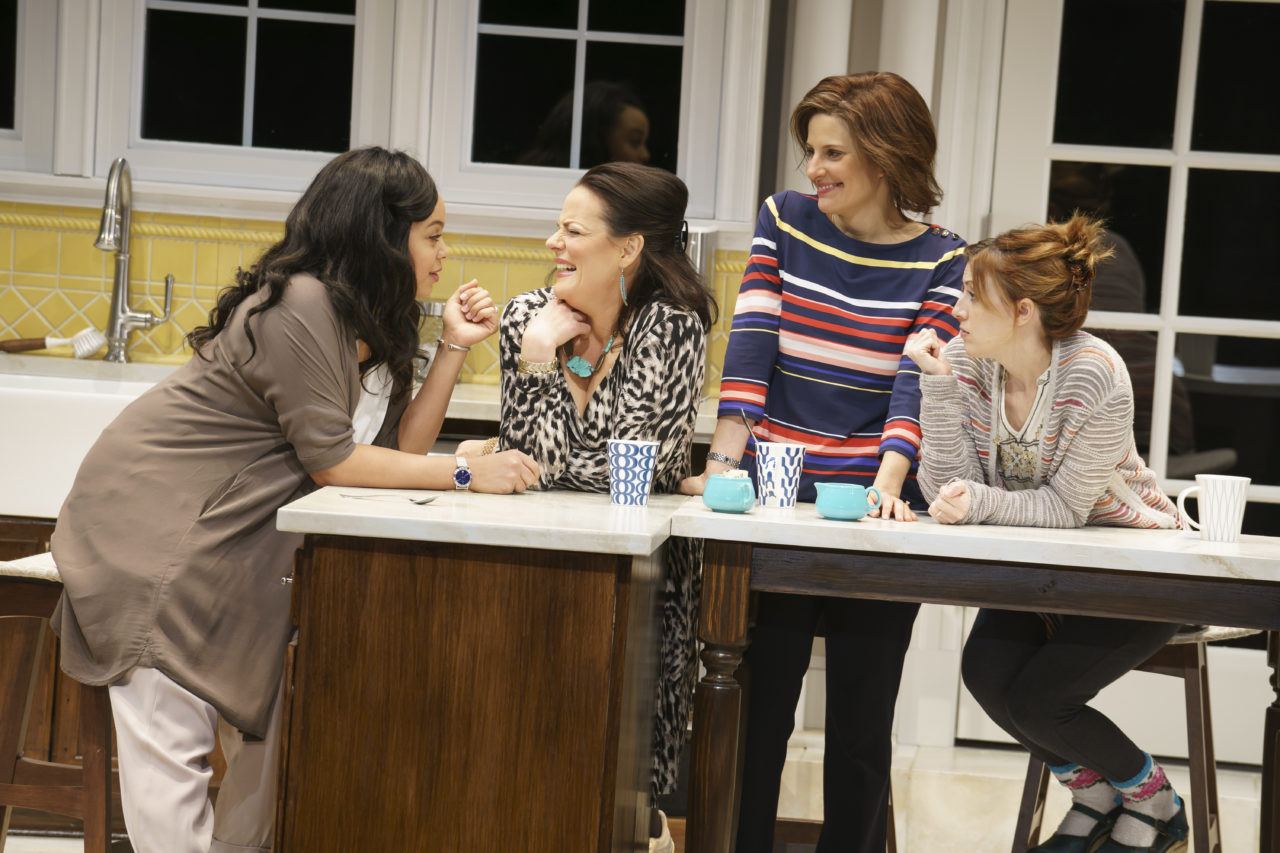
Michelle Beck (Renee), Danielle Skraastad (Pam), Mia Barron (Carol), and Kate Wetherhead (Beth) are four housewives with varying reactions to Diane’s sudden appearance in their suburban town, in the 2019 NYTW production. – Photo courtesy of Sara Krulwich/New York Times
It’s not a play about solutions. It’s about grappling with the tension between what we know, and what we want. I’m obviously talking about a very narrow slice of the world’s population, who live inside fossil-fuel-powered palaces of safety—like myself. What would it take for me to acknowledge the extent to which I’m complicit in the destruction of my natural home?
CL: In her opening monologue, Diane says it’s “Eleven f***ing forty-five” on the cosmic clock.
MG: It’s so much later now, isn’t it? Unfortunately, it also goes to show how much we’re tolerating. If L.A. is on fire, and Tallahassee is under six inches of snow, and that’s not a movie…obviously we’re rolling with it on some level. Maybe that’s the new question that the play is pushing toward. “How are we tolerating this?”
CL: But it’s also such a funny play!
MG: I mean, I love sitcoms! It’s a very joy-infused form for me. If you’re going to be taking on deep and harrowing questions of moral complicity, comedy is a really great vector because people can get on board—and not in a bait-and-switch way. It’s the truth about being in a terrible unfolding crisis, you know what I mean? In those moments of rupture and displacement, there’s the best of humanity.
But if we’re being honest, this play is really a tragic comedy, because it ends on a very painful note. In principle, the structure of comedy is to drive toward the formation of a new world—the “obstacle” has been purged, and now we can go forward as this happy, perfect new community until the next thing arrives. But Hurricane Diane is not built like that. It’s more, “And then there were none.”
CL: It’s a very particular new world you build at the end there.
MG: I have been thinking so much about the image of rubble, and how it’s sort of the image of this moment. There’s so much rubble coming toward us from all directions.
CL: It is so hard to write about the climate crisis in a way that feels useful. That doesn’t feel trite.
MG: I guess here’s the thing: It’s too much for any one person to do anything about. Any response has to take place on a collective scale. But, stories don’t take place on a collective scale. Stories are about individuals.
So, either the character is getting whopped by a kind of massive hyper object that they can’t respond to, or you’re lying and saying to an individual, “You should do this thing.” Then the individual who is receiving the story is like, “Yeah, I know that I could turn my lights off right now…It’s not going to change anything.” It becomes about interrogating this feeling of being a small, fragile, vulnerable little animal, inside this whirlwind that is so huge. Hurricane Diane looks at that scale difference.
It’s also thinking about complicity—not just vulnerability. The play has Diane, who is the Dionysus figure. But it also has Carol, the Pentheus figure—this rigid, rejecting, hyper-rational figure who refuses to let Diane affect her. My question in the play is, how can I be both those people? Because I totally am. I’m the person who’s like, “We should tear out our lawns! We should change everything!” And then I’m also the person who’s like, “I cannot leave my couch. I am going to watch Real Housewives for eight hours until I’m numb.”
CL: So is the role of the artist to speak to those human elements of us? Or is it to try to affect change, despite the obstacles?
MG: I mean, I wouldn’t tell anybody, “Don’t try to affect change.” But I think if I wanted change…I would look to a city council or a climate scientist, before I look to an artist. No offense to us. That said, a climate scientist cannot tell us anything about the fact that we are both perpetrator and victim in this moment. An artist might be able to. They could at least take a whack at it.
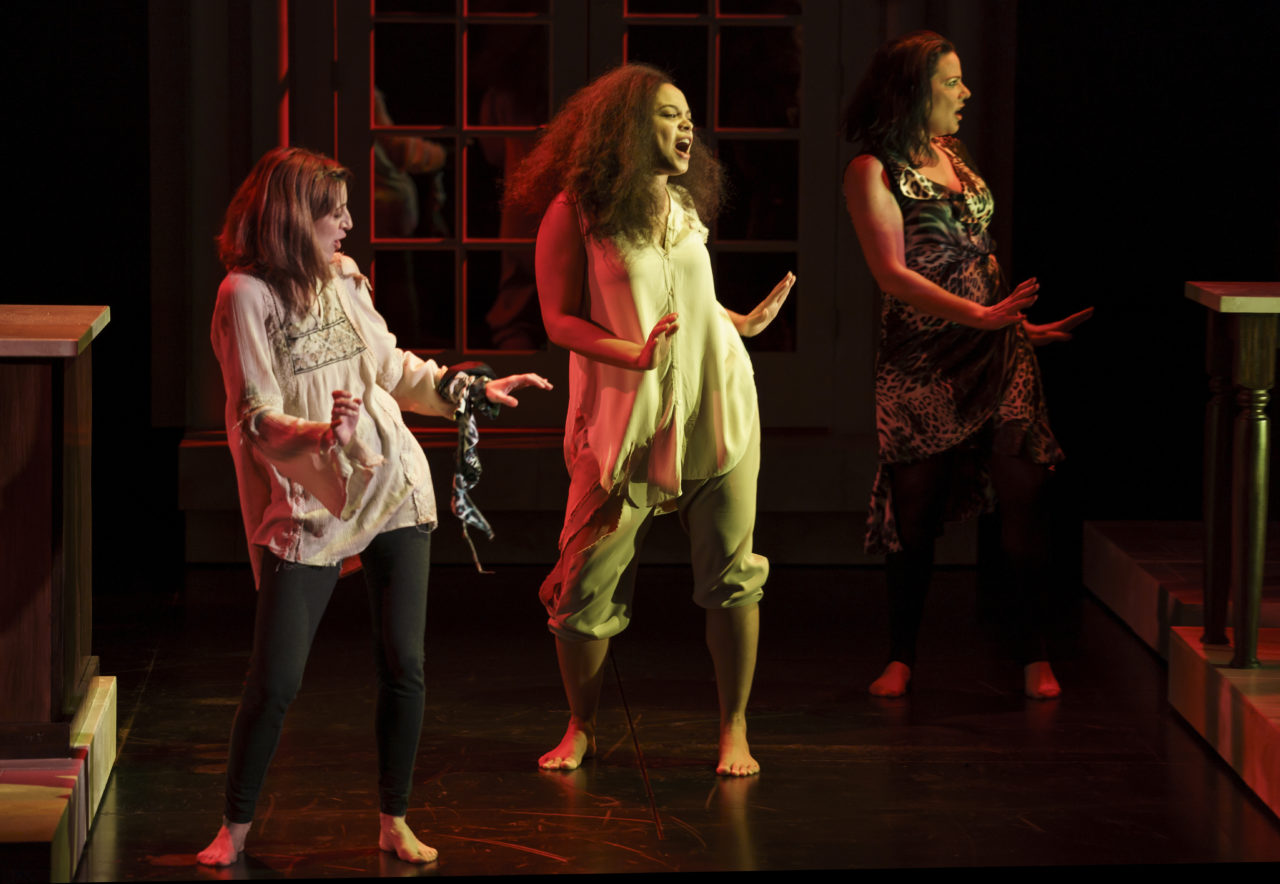 Though it’s not a musical, New York Theatre Workshop’s 2019 production of Hurricane Diane also featured music by husband-wife folk duo The Bengsons and choreography by Raja Feather Kelly. – Photo courtesy of Sara Krulwich/New York Times
Though it’s not a musical, New York Theatre Workshop’s 2019 production of Hurricane Diane also featured music by husband-wife folk duo The Bengsons and choreography by Raja Feather Kelly. – Photo courtesy of Sara Krulwich/New York Times
CL: Speaking about affecting change, toward the end of the play, Diane is struggling to get those last couple people on board [with her vision]. She takes some…maybe not great tactics…in order to accomplish her goals.
MG: (Laughing) Are you asking, am I in favor of eco-terrorism? I’m not going to say I’m not in favor of it!
CL: We need to not be afraid to throw bombs?
MG: Shouldn’t we at least be talking about it, as a robust collective conversation? Instead of the mass irritation that met, for example, [the two Just Stop Oil protestors who threw tomato soup at a Van Gogh painting in 2022]. I was working in a TV writer’s room at the time, and people kept calling it irritating and pointless.
How could you say that? A) Everybody’s talking about it. And B) From the perspective of somebody who is really looking at the oncoming train…
So no, I don’t think there’s aserious collective conversation about the legitimacy of direct action—Extinction Rebellion tactics, basically. But there needs to be.
I heard Amy Westervelt—she has the podcast Drilled, an incredible series on the evil machinations of the fossil fuel industry—saying we hope things get so bad that people see things [have to change]. But, what really happens when people lose their homes…it’s not that they become radicalized to the cause, it’s that they lost their home. They’re incredibly distressed, and they retrench in their familiar beliefs, you know?
CL: Which is so true ofthe women in Hurricane Diane. Each of these characters are going through their own form of PTSD from Sandy. And, I do think they’re justified in saying, “My life has broken down once already, can’t I take comfort in objects that are bringing me joy? Why would I give those up?”
MG: Right. From that character’s perspective, that is an unimpeachable conclusion. Watching people rebuild their homes after they were dragged into the ocean was boggling to me…But if the home I’m sitting in right now was torn off of its foundations, would I not rebuild it? It’s your neighborhood. Those are your people. It’s very hard to know what to do.
CL: It’s impossible.
MG: Theater, when it’s at its best—it can spur conversation outside of the theater. That’s the dream of a play like this. Maybe, a conversation between a couple that has never discussed what they would do if they had to face climate migration. We’re longing for a collective conversation that takes climate seriously, but small conversations are valuable, too. They become the foundations for bigger conversations.
CL: Are there things bringing you optimism about our natural world?
MG: I’m not kidding when I say going to the plant store and seeing the native cultivars marked, given how unimaginable that was just a short time ago. It shows a couple of things to me. One, people are capable of changing, since these decades-old beliefs about garden design have really revolutionized over a short period, to the point where the things that would have been considered disgusting are now revered as design methods.
But it also shows what’s possible with expertise. Gardeners are like a secret force. And not just gardeners—birders, hunters, farmers, people who are “ordinary folks,” but who have a deep relationship with the natural world. Those people are an untapped fighting force for this. And maybe I feel like they’ve begun to be tapped or whatever.
We always think that disaster is the way to catalyze action. But love is also the way to catalyze action. Every person has some thread that connects them to the natural world. That could be a source of real power and real movement…if we let it.
– – –
Hurricane Diane runs from June 5-29, 2025, at Hartford Stage in Hartford, Connecticut. For more information about the production, including how to purchase tickets, please visit the theater’s website.
The play’s script can be purchased for reading through Concord Theatricals.
This article was originally published by Bluedot Living, on May 29, 2025.


